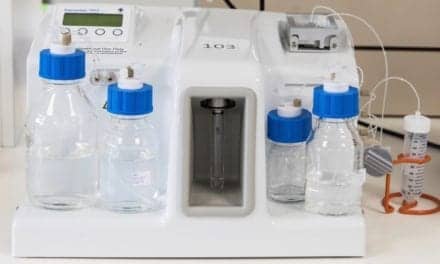The presence of the protein KIF1B? can play a central role in predicting the outcome of a neuroblastoma diagnosis, according to a recent study by researchers at the Karolinska Institute and the Ludwig Institute for Cancer Research Ltd.1 A high percentage of KIF1B? represents a greater chance that a tumor will spontaneously regress and disappear.
Neuroblastoma is the third most common form of childhood cancer and causes almost 15% of all cancer-related deaths in children. Such high mortality reflects both the aggressive nature of the disease and the fact that it often gives rise to secondary tumors. Paradoxically, neuroblastoma also has the highest spontaneous regression frequency of all tumoral diseases.
Researchers showed that absence of KIF1B? contributes to normal neuroblasts not maturing into nerve cells, leading to a less mature neuroblastoma with a poorer prognosis.
“Our study shows that unimpaired maturing of neuroblasts is a basic prerequisite for spontaneous regression of neuroblastoma,” says Susanne Schlisio, PhD, a researcher in the Karolinska Institute’s department of microbiology, tumor, and cell biology and at the Ludwig Institute for Cancer Research Ltd. “What is behind this regression is unknown, but our study is an important piece in the jigsaw for understanding the mechanisms that cause this phenomenon.
“Understanding this process in greater detail can provide clues for the development of new therapies,” Schlisio adds. “For example, it would be interesting to increase levels of KIF1B? activity to see if this facilitates, or even induces, tumor regression.”
High gene expression of the NGF receptor TRKA correlates well with good prognoses and with spontaneous regression of tumors. Conversely, low levels of TRKA, partnered with loss of the 1p36 chromosome locus and amplification of the MYCN oncogene, are associated with poor prognoses.
“We have previously shown that the kinesin protein KIF1B?, which is present on chromosome 1p36, is a candidate tumor suppressor, and that a low expression is correlated with lower survival of neuroblastoma patients,” says Schlisio.
The research is being financed with funding from the Swedish Childhood Cancer Foundation, the Swedish Cancer Society, the Swedish Research Council, the Paradifference Foundation, and the Gösta Fraenckel Foundation for Medical Research.
REFERENCE
- Fell SM, Li S, Wallis K, et al. Neuroblast differentiation during development and in neuroblastoma requires KIF1B?-mediated transport of TRKA. Genes Dev. 2017;31(10):1036–1053; doi: 10.1101/gad.297077.117.






